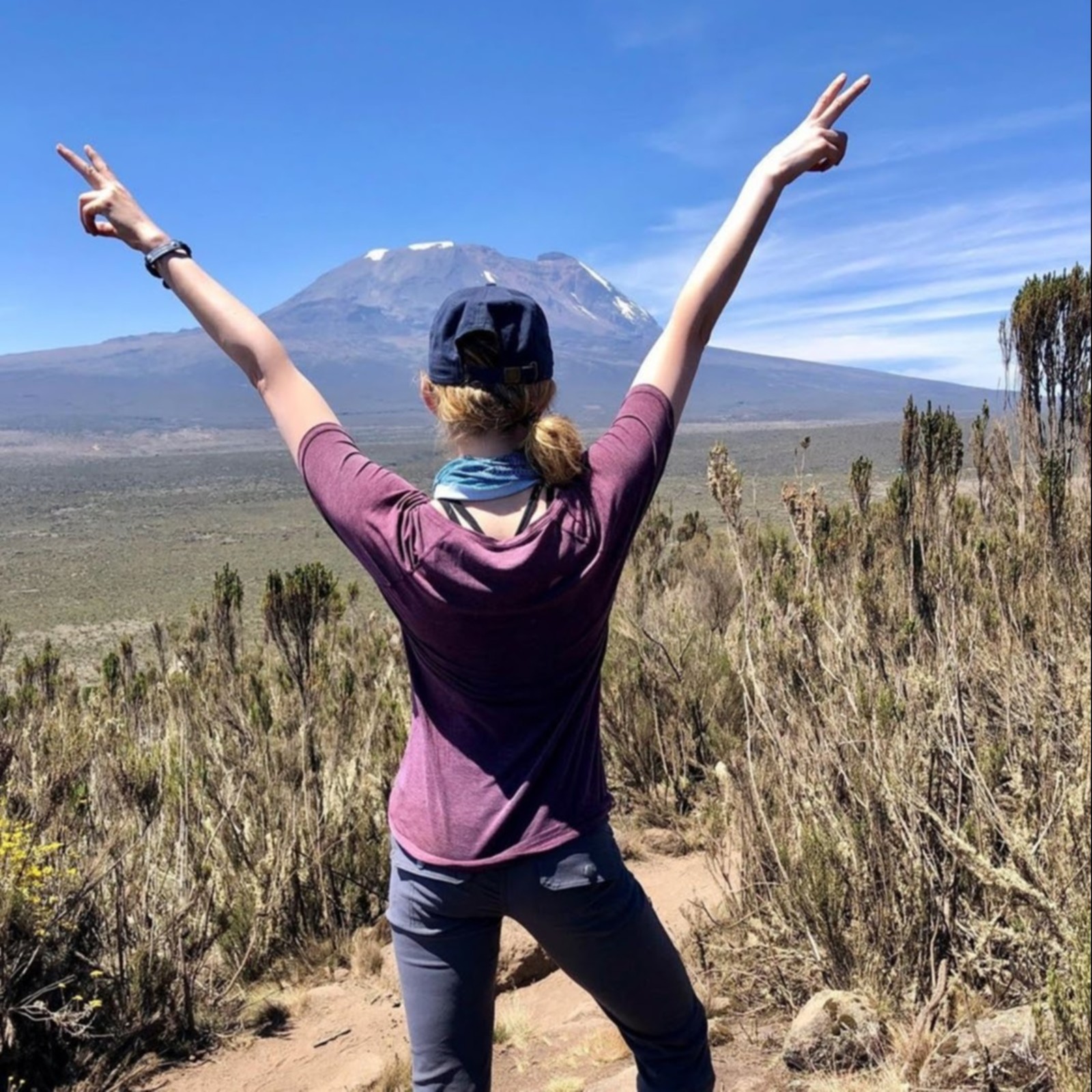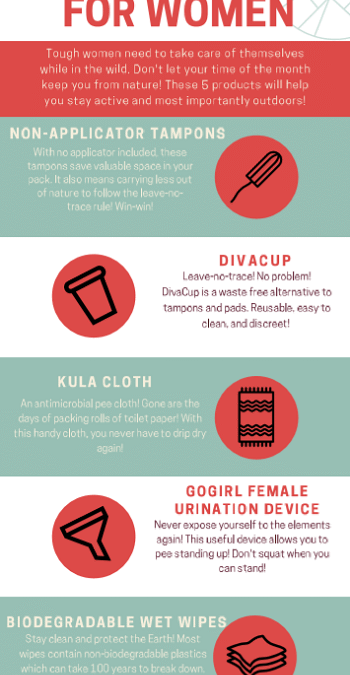Climbing Mount Kilimanjaro is a dream for many adventurers, but what happens when your menstrual cycle coincides with the climb? Female climbers often face unique challenges, one of them being how to handle menstruation and hygiene at high altitudes. Expeditions can get extra daunting when you’re managing physical exertion, altitude sickness, and menstrual discomfort simultaneously.
Historically, menstruation during such physically demanding events was seen as a taboo topic. Recent studies indicate that 20% of female climbers actively seek tips on managing periods while scaling mountains. Using menstrual cups can be a game changer as they are eco-friendly, space-efficient, and last longer between changes compared to traditional sanitary products.

Essential Menstruation and Hygiene Tips for Female Climbers of Kilimanjaro
When climbing Kilimanjaro, staying prepared for menstruation is crucial. High altitudes can make handling periods more challenging. It’s important to choose the right products like menstrual cups or tampons. These options are compact and easy to dispose of, reducing waste on the mountain. Remember to pack enough supplies for the entire climb.
Maintaining hygiene can be tough with limited water access. Carrying biodegradable wet wipes can be a lifesaver. You can also pack hand sanitizers to ensure cleanliness. Making a routine for personal hygiene is helpful to keep infections at bay. Focus on keeping yourself comfortable and clean.
Disposing of menstrual products properly is essential for environmental reasons. Always carry a small, sealable bag for used products. Some climbers prefer reusable menstrual cups since they don’t create waste. Guides usually provide information on disposal practices at various campsites. Learn more about Kilimanjaro disposal tips here is the article.
Rashad Adventures offers support and resources for female climbers. They provide guidance on selecting and using menstrual products on the trek. Additionally, they have female guides to offer advice and support. Feeling secure and knowledgeable can make your climb more enjoyable. Check this post about female climbers and their experiences.
Understanding the unique challenges
Female climbers encounter distinct hurdles when trekking up Kilimanjaro. Managing menstrual cycles and hygiene in remote conditions is one of them. The extreme weather and high altitudes can also impact menstrual flow. Knowing how to handle these factors is crucial for a successful climb. Preparations should include packing the right menstrual products and hygiene essentials.
The limited availability of water complicates hygiene maintenance. Climbers often must ration their water supplies. This makes it hard to keep clean during their periods. Hand sanitizers and wet wipes become invaluable. Using biodegradable products helps to minimize environmental impact.
Disposal of menstrual waste is another challenge on the mountain. Many campsites have specific guidelines for waste management. It’s important to follow these rules to keep the environment pristine. Reusable options like menstrual cups can reduce waste. They are also compact and easy to carry.
Finding privacy for managing your period can be tough on a crowded trail. Female climbers may feel uneasy due to the lack of private spaces. Teaming up with other female hikers can provide mutual support. Sharing tips and experiences can be very helpful. Rashad Adventures encourages female climb groups for this reason.
Choosing the Right Menstrual Products for Your Climb
Picking the right menstrual products is key to having a comfortable climb. Menstrual cups are highly recommended for their convenience and eco-friendliness. They can be worn for up to 12 hours, reducing the need for frequent changes. This is especially useful when access to bathrooms is limited. Additionally, they don’t take up much space in your backpack.
Another reliable option is tampons, which many women find easy to use. Make sure to select tampons with applicators to maintain hygiene. It’s wise to carry enough supplies to last the entire duration of your climb. Consider packing different absorbencies to match your flow. Here’s a simple packing list to help:
- Regular tampons with applicators
- Super tampons with applicators
- Pads for overnight use
- Biodegradable wet wipes
- Hand sanitizer
Pads are an option, but they can be bulky and difficult to dispose of on a mountain. Many climbers prefer to avoid them due to the extra waste they generate. However, they can be useful for overnight protection. Using a combination of products might work best for some climbers. Always pack extra in case of an extended stay.
Cloth pads are reusable and environmentally friendly, but they require more water for cleaning. This can be a challenge on Kilimanjaro where water is scarce. If you choose cloth pads, plan on how you’ll clean and dry them. Bring a small, waterproof bag for storage. Research and practice using them before your climb.
Maintaining Hygiene on the Mountain with Limited Resources
Keeping clean on Kilimanjaro can be tricky with limited water. Many climbers rely on biodegradable wet wipes to freshen up. They are lightweight and easy to carry. Wet wipes can be used for multiple purposes like cleaning your hands and face. Always choose biodegradable options to minimize environmental impact.
Hand sanitizers are another essential item for maintaining hygiene. They are especially useful when soap and water aren’t available. Pack a small bottle in your backpack for quick access. Make sure to use the sanitizer before and after eating. It also helps to keep your hands clean when handling menstrual products.
Finding a private spot to change and clean yourself can be challenging. Plan short cleaning breaks when the group stops for rest. Use a small, foldable privacy tent if needed. These tents are easy to set up and provide a private space for changing. Communication with your group can also help in arranging private moments.
For oral hygiene, use a small travel toothbrush and toothpaste. You can also carry a bottle of water for brushing your teeth. It’s vital to maintain dental hygiene even on a mountain. Some climbers prefer using chewable toothbrushes, which require no water. These are convenient and help keep your mouth fresh.
Managing waste is a crucial part of hygiene on the mountain. Always pack out what you pack in. Use sealable plastic bags to store used wipes and menstrual products until you can dispose of them properly. Follow the guidelines provided by your climbing group for waste disposal. Ensuring you leave no trace is part of responsible climbing.
In addition to personal hygiene, keeping your clothing clean is important. Carry extra underwear and socks to change into. Using moisture-wicking and quick-drying fabrics can be helpful. This reduces the risk of infections and keeps you comfortable. Proper hygiene practices contribute to a safer and more enjoyable climb.
Environmental Considerations and Disposal Practices
Taking care of the environment is essential when climbing Kilimanjaro. Every climber must follow the “leave no trace” principle. This means packing out all waste, including menstrual products. Using biodegradable wet wipes and toiletries can minimize your impact. Make sure everything you bring in, you also bring out.
Proper disposal of waste helps keep Kilimanjaro pristine. Always carry a sealable plastic bag for used items. This includes wipes, tampons, and pads. When you return to base, dispose of these items properly. Following these steps keeps the mountain clean for future adventurers.
Choosing eco-friendly products is a sustainable option. Menstrual cups are a great example as they produce no waste. They can be reused throughout the climb, reducing the need for disposable items. Using cloth pads, if manageable, is another eco-friendly choice. These small steps help protect Kilimanjaro’s natural beauty.
Following park guidelines for waste disposal is crucial. Local guides will inform you about the rules for different campsites. Some areas may provide proper disposal bins. However, it’s always best to carry your waste until you can dispose of it correctly. Proper planning and following regulations safeguard the environment.
Using reusable water bottles cuts down on plastic waste. Hydration is vital on the climb, and reusable bottles keep the mountain free from litter. Metal or BPA-free plastic bottles are both good choices. Pack enough to stay hydrated, but don’t bring extra waste. Avoid single-use plastic bottles whenever possible.
Reducing your environmental footprint isn’t just about waste. It also involves mindful travel, such as using eco-friendly transportation and lodging options. Supporting responsible tourism preserves both the mountain and local communities. Rashad Adventures promotes sustainable practices for all their climbing expeditions. Keep these considerations in mind for a more eco-friendly adventure.
Support Networks and Resources Provided by Rashad Adventures
Rashad Adventures offers extensive support for female climbers. This includes guides who are trained to handle challenges specific to women’s health. Female guides are available to provide advice and assistance. These resources can be invaluable for managing menstruation during the climb. Support from experienced professionals makes the journey smoother and more enjoyable.
Rashad Adventures also provides detailed packing lists tailored for female climbers. These lists include essential items for hygiene and menstruation. Knowing what to pack helps ensure you are well-prepared. The guides can offer tips on how to use these items efficiently. Preparation is key to a successful and stress-free climb.
In addition to guides, Rashad Adventures coordinates with local health experts. Climbers have access to medical advice if needed. This includes knowledge about altitude sickness and how it can affect menstrual cycles. Having medical support on standby provides peace of mind. It ensures that health concerns are promptly addressed.
The company organizes group climbs for women, fostering a supportive community. These groups allow female climbers to share experiences and tips. It creates a network of mutual support during the challenging climb. Participating in a group can make the journey more enjoyable and less daunting. Rashad Adventures encourages camaraderie and team spirit among climbers.
Educational workshops are another resource provided by Rashad Adventures. These workshops cover a range of topics from packing essentials to hygiene practices. They aim to equip climbers with the knowledge needed for a safe trip. Workshops also offer a platform to ask questions and seek advice. Learning from experts boosts confidence and preparedness.
Rashad Adventures also emphasizes sustainable practices among climbers. They teach proper waste disposal methods and eco-friendly habits. Supporting the environment is a core value during their expeditions. By educating climbers on these practices, they help preserve Kilimanjaro. Making responsible choices benefits both the climbers and the environment.


Recent Comments